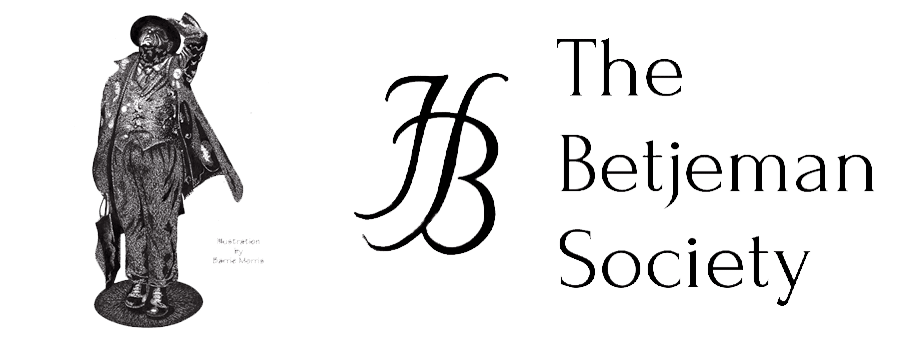About Betjeman
POET, WRITER, BROADCASTER, JOURNALIST
John Betjeman
“I love my father and want to show the world how great he was, how he revealed the divine in the ordinary and how he enriched so many people’s lives” Candida Lycett Green (1942-2014)
Sir John Betjeman was a poet, broadcaster and journalist. He was the UK’s Poet Laureate from 1972 until his death in 1984.
He was amongst the pre-eminent poets of the twentieth century, enthusing people about the value of Britain’s cities, landscapes and architecture, as well as producing many volumes of poetry, which sold in their thousands; many of which remain in print. He mainly wrote poetry in metre and rhyme. Where Eliot felt that poets should be difficult, Betjeman wanted to make his themes and subjects accessible; he always wrote with clarity. Amongst his best known poems are A Subaltern’s Love Song, Slough and How to Get on in Society. He is one of the most amusing writers in English and perhaps his greatest gift was for satire of the middle classes.
Born in North London in 1906, he was taught by TS Eliot at an early age; although Eliot later became a friend, Betjeman was not a modernist. He read English at Oxford during the 1920s and was a contemporary of WH Auden, Evelyn Waugh, Anthony Powell, Kenneth Clark and Harold Acton.
He was also an architectural conservationist: a founder of the Victorian Society and a longstanding committee member of SPAB. He tried, unsuccessfully, to save the Euston Arch (demolished 1961) and the London Coal Exchange (destroyed 1962); but in 1963 he led the successful campaign to save Bedford Park in West London. Betjeman also deserves the greatest credit for saving the magnificent St Pancras Station (1868) from destruction: it features in his book London’s Historic Railway Stations. His role in its survival is marked by a lifesize statue on the concourse.
His vast number of publications included his editing, with his friend, the artist John Piper, the Shell Guides to English counties; his prose essays, such as First and Last Loves and Ghastly Good Taste (a phrase he coined) and his blank verse autobiography, Summoned by Bells(1960).
He was also a prolific broadcaster from the 1930s, being amongst the first to appreciate the power of television as a broadcasting medium to communicate to the largest possible audience. As a consequence, next to HRH The Prince of Wales, he was probably the most recognizable man in Britain in the 1960s and 1970s.
He suffered from Parkinson’s Disease during his later years and was prominently featured in the campaigns of Parkinsons UK. When he died in 1984, Prince Charles read a lesson at his memorial service in Westminster Abbey. A monument was later placed in Poets’ Corner in Westminster Abbey.
Thirty years since his death, Betjeman remains popular, both in print and through his films and broadcasts; this Society is committed to contributing to keeping his legacy alive.
With many thanks to Bevis Hillier, our President and author of the authorised three volume biography of John Betjeman.
